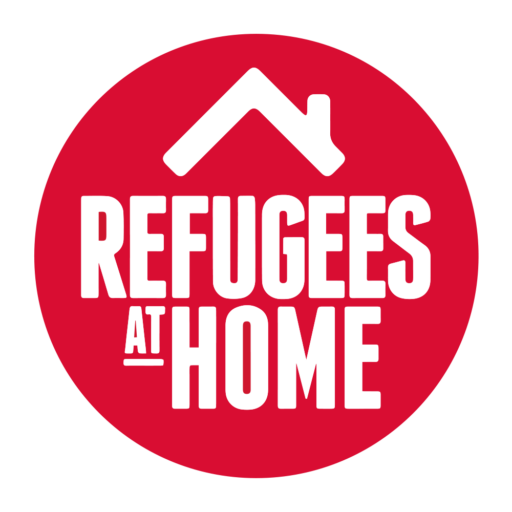
“It would be good to live in a world where nobody needs to host refugees.”
Dr Janet Williams is a priest based in Mirfield. To date, she’s hosted two guests with us – each staying for more than 200 days. We spoke with her about hosting male guests as a single woman, and how her faith motivated her to get involved with Refugees at Home.
It would be good to live in a world where nobody needs to host refugees. In that sense, I didn’t ‘want’ to start hosting. I’d prefer not to! But when you hear the news of what some people are suffering and you have a spare room in your house, it seems right. I’m a Christian priest, so I lead prayers for people who are suffering terribly, and it would just seem hypocritical of me to ask God to do something about it and not do what I can.
I got in touch with Refugees at Home and in the very first questionnaire I filled out I said that my house is probably more suitable for female guests – but I’ve only had two guests so far and they’ve both been utterly amazing men. People have asked me, as a single woman, about the risk of welcoming a male stranger into my home.
I did think carefully about different cultural assumptions about gender roles, for example, but I didn’t want to take as my starting point the assumption that all strangers are dangerous.
And I was right to do so – both my hosting experiences have gone amazingly well; my guests have both been lovely gentlemen and just a joy to share space with. It’s lovely when you meet strangers and they turn into friends, isn’t it?
My house is not ideal for everyone: I live in a small, largely white middle-class town with a very small ethnic community, so there isn’t the kind of vibrant community of refugees that you might find in places like Bradford, Leeds or Manchester.
It can be quite isolating to be placed with me, so anyone who stays with me needs to be quite independent and self-motivated to get out and make contacts. It isn’t simply about ‘hosting a refugee’ – you need to ask, ‘what is this particular person’s situation and needs? What kind of space will suit them?’
I think for some people a multi-generational family home will be ideal, while others will be happy with a much quieter place like mine. It’s important to be clear in advance about what kind of home environment you can offer.
The hardest thing was dealing with the end of the first placement I had, trying to not interfere while my guest handled things with his case worker, but to be informed so that I had eyes for what he was going through. Having to stand in your own space and try and somehow moderate this experience for somebody when you have no power is really difficult.
There were repeated last-minute hitches – and then in the end, after weeks and weeks of disappointment, tears and bizarre phone calls, there was a taxi on its way, and we had to say goodbye to each another in five minutes flat. That did feel very, very difficult.
Later, there was a happy ending. A WhatsApp message from my first guest with a photograph of him holding his first child. That was a moment of absolute joy to see. Him standing there in scrubs, in a delivery room with a newborn baby in his arms.
Through church networks we managed to find my second guest a new sponsor so he could move on to university – I had supper with him recently and he’s flourishing as a member of an international student community. He’s following his dream, picking up his studies and is well cared for.


